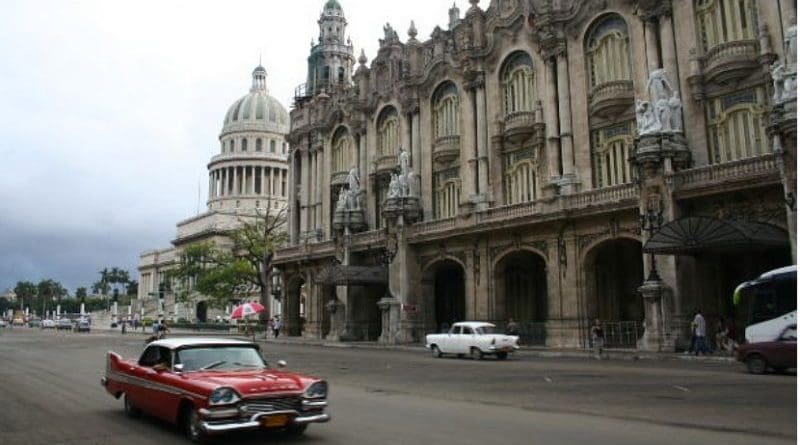EU Vows To Respond To US Sanctions To Protect Companies In Cuba
By EurActiv
By Jorge Valero
(EurActiv) — The European Union is ready to counter potential US sanctions against European companies in Cuba, the bloc’s top diplomat said on Thursday (2 May), following Washington’s reactivation of parts of the legislation that would allow US citizens to file lawsuits against investors in the island.
Confirming the latest friction between the transatlantic partners, EU High Representative for Foreign Affairs and Security, Federica Mogherini, said she “deeply” regretted the US decision to reactivate parts of the 1996 Helms-Burton Act.
US President Donald Trump decided to lift the ban against US citizens filing lawsuits against foreign companies that benefited from properties seized by Fidel Castro’s government following the 1959 revolution (Title III of the law).
Trump also threatened to implement Title IV, which would restrict the entry to the US territory of those who confiscated properties of Americans in Cuba or benefited from the confiscation.
The decision was criticised by the Europeans and other countries, including Canada, whose companies have also a sizeable portion of investments in the island.
The US Administration said the lifting of the suspension could bring hundreds of thousands of legal claims worth tens of billions of dollars against foreign firms.
Mogherini wrote in a statement that these unilateral sanctions are “contrary to international law”. As a response, Europe intends to limit the effects of the Helms-Burton Act by using the “Blocking Statute” and by taking the US to the World Trade Organisation.
The “Blocking Statute” allows EU companies to recover any damages from rulings in the US territory.
Frictions
Mogherini said this decision broke the commitments made by both sides in 1997 and 1998 to suspend the application of Title III and IV. Successive US governments have maintained this suspension since then, she recalled.
“This will cause unnecessary friction and it undermines trust and predictability in the transatlantic partnership,” she added.
Since Bill Clinton, all US presidents sent to Congress a notification every six months to prevent the entry into force of those provisions.
Trump shortened suspension from six months to 45 days, then to one month and, later, to two weeks. The last two-week suspension ended on 1 May.
Mogherini and Trade Commissioner Cecilia Malmström sent a letter to the US Secretary of State, Mike Pompeo, warning about the EU response.
The EU commissioners wrote that if the law was fully applied, the “EU will be forced to use all the means at its disposal”, including taking the US to the WTO.
Mogherini added in her statement that the EU is working with other countries that have also voiced their concerns after Trump’s decision.
The EU is the biggest foreign investor in Cuba, mainly in tourism, construction, light and agro-industries, and accounts for a third of the arriving tourists.
Spain, the Netherlands, Italy and France are among the top investors in the island.
In early April, Spanish Foreign Minister, Josep Borrell, met in Washington with Pompeo and US legislators to express his concerns about the reactivation of parts of the Act.

